
Seashells are soft animals from the Mollusks phylum, some of them live in marine environments
(e.g. Clams, Oysters, Octopus), other in freshwater environments (e.g. Pond snails, Mussels) and some other live on land (Snails, Slugs)
The photographs below display a few examples of molluscs.
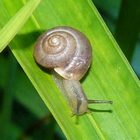 |
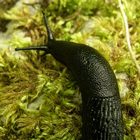 |
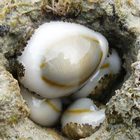 |
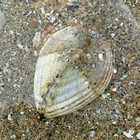 |
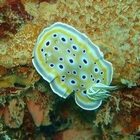 |
| Land snail | Land slug | Marine gastropods | Marine bivalve | Marine slug |
Some mollusks are shell free or have a very reduced shell. But many mollusks can build a shell which provide a shelter against external predation.
Basically, a shell from a marine mollusk is a seashell.
The shape and coloration of seashells can vary greatly between the different classes, families and even individuals.
This is mainly because of these variations that seashells are sought after a lot of people and are a very nice thing to collect.
As molluscs consist of very different groups, they show a good diversity of life styles and behaviours.
Go to section Ecology & Biology to know more about it.
Molluscs are invertebrate and they form a big branch of the tree of life. Check the classification section to learn about them and to know from which class come your shells.
Molluscs can be found in about any environment at any sea levels.
The section distribution will give you more information about geographic
distribution.
Humans use molluscs for 3 main reasons:
1. Food: this is obvious enough, we all need to eat and molluscs are a good source of meat, and it is bonefree!
2. Crafting: some beautiful shells are used as primary material for jewelry, some other for pearls and certain animals can provide cloth dye.
3. Construction material: when shells are more abundant than rocks, they are a good replacement (road building, dike raising, etc.)
Amongst certain populations, shells were also used as money.
And of course, we cannot forget the seashells collecting hobby...